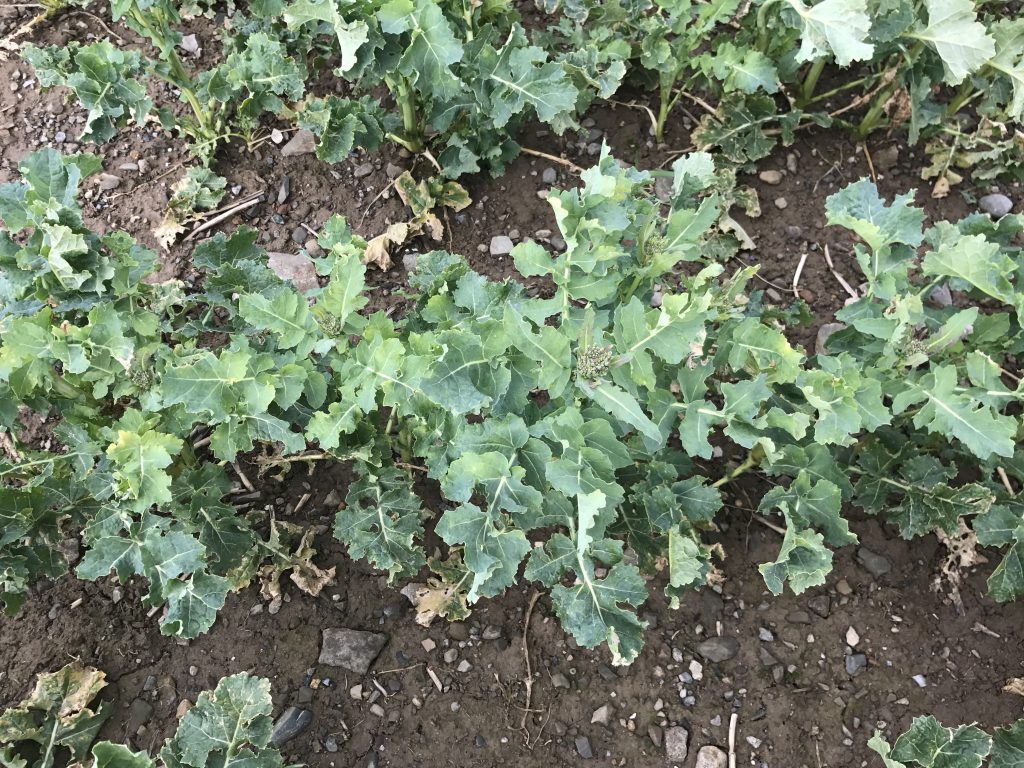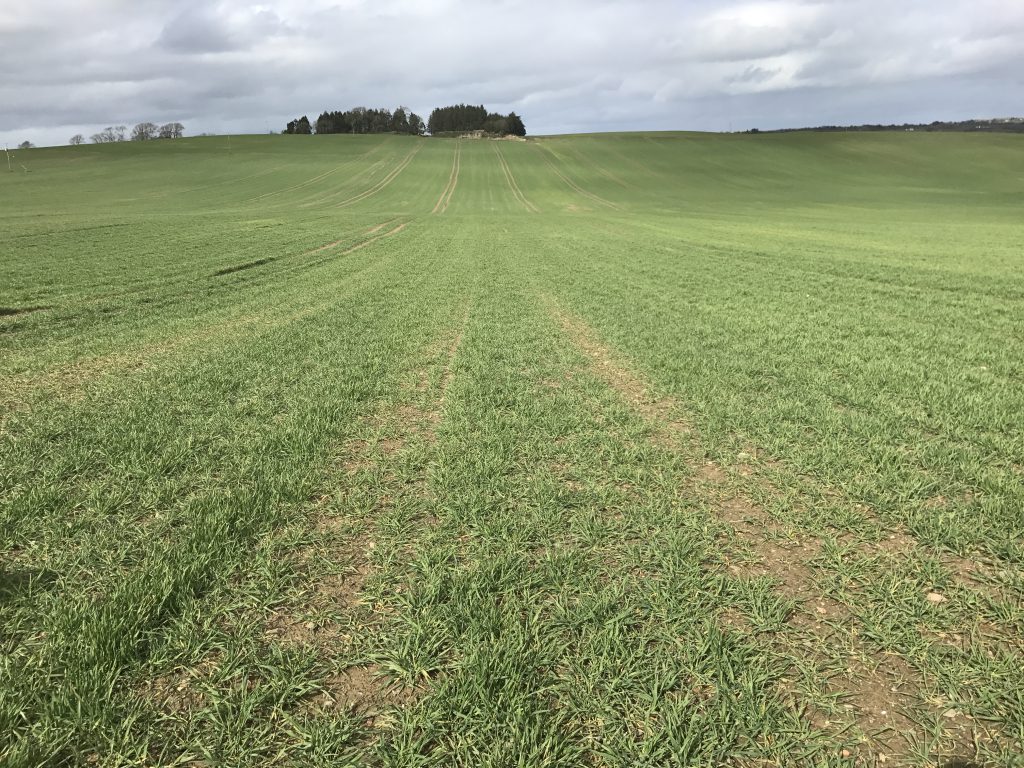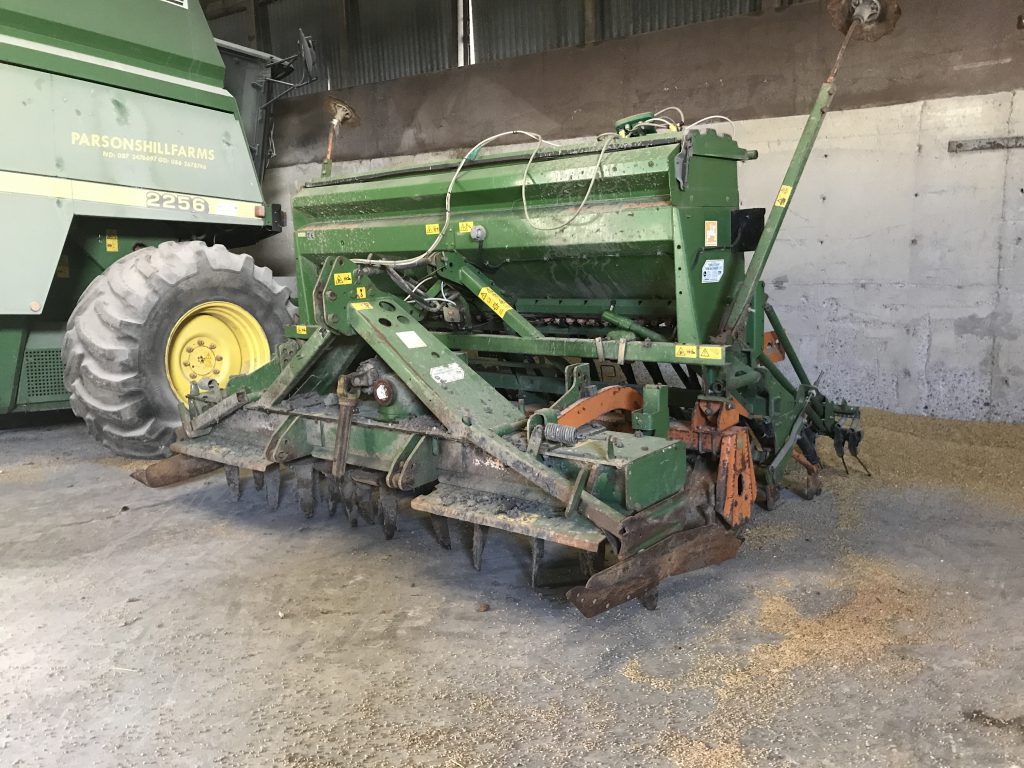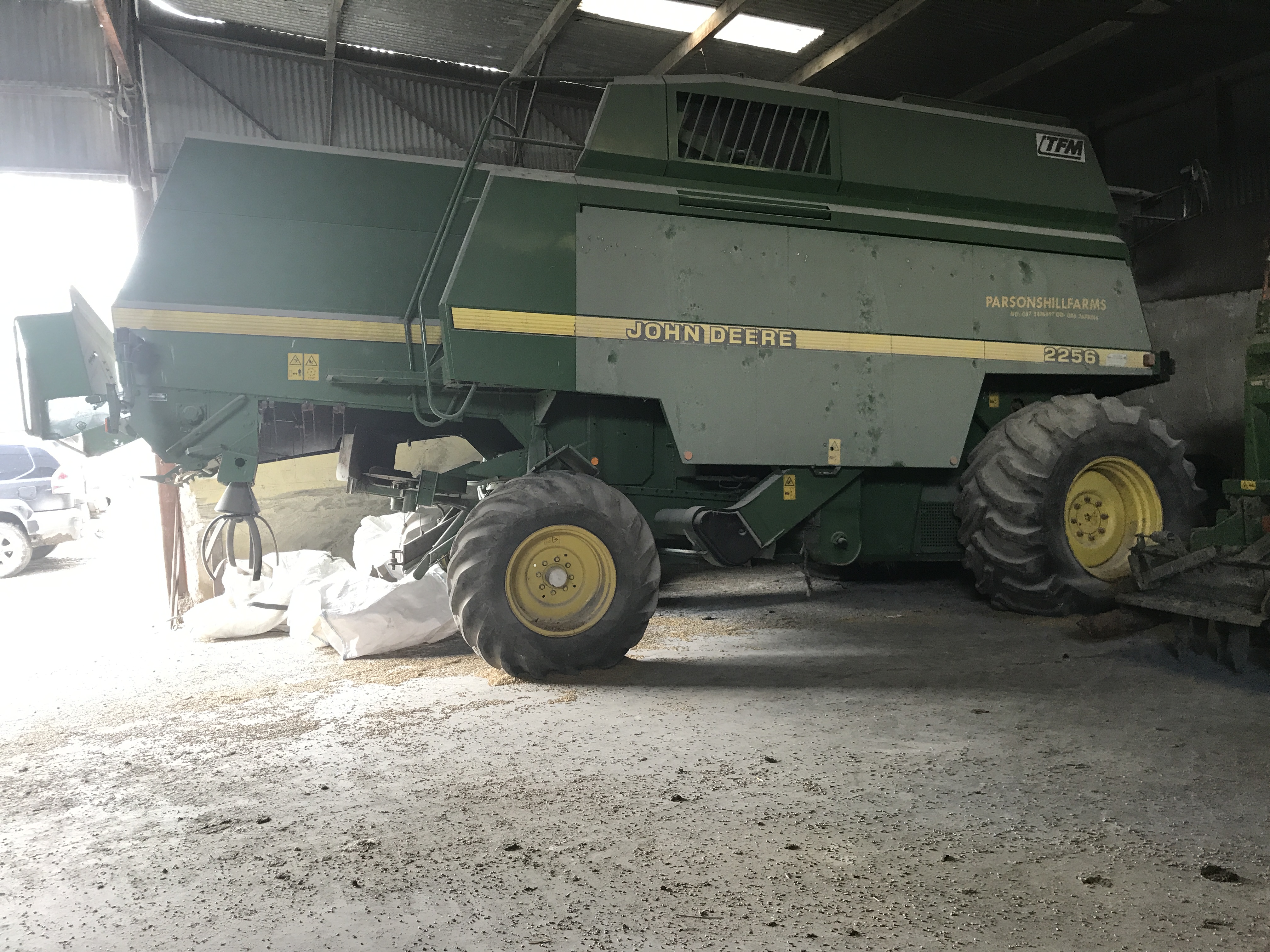This young Tipperary man is broadening his rotation. This season he has added seed oilseed rape to the fold.
Gavin Delany farms in partnership with his father Noel at Parson’s Hill Farm, just outisde Fethard, Co. Tipperary. Located 500ft above sea level, the farm overlooks a large surrounding area including the town of Fethard and the famous Coolmore Stud.
Gavin has been farming for four years and also runs a feed business with his father. This enterprise supplies cereals, maize, soya bean meal and other straights to 180 customers.
“I finished college in 2015, but I started farming in 2014. I studied Agricultural Science in CIT (Cork Institute of Technology).
“We have cereals and oilseed rape. The oilseed rape is going for seed. It’s grown for Seedtech.”
Seed oilseed rape
The seed oilseed rape variety is ‘Dalton’. This seed will be exported to Germany by Seedtech. Both male and female plants need to be sown in a seed oilseed rape crop. The picture above shows six rows in the centre. These six rows are male plants. These rows will be mulched out of the crop later in the season.
It’s sown with a 12-row beet sower that’s adapted for rape and Seedtech sow the crop. It’s my first year doing it; I had to get a rotation going with the cereal crops.
Gavin hopes that introducing more crops into the rotation will help to reduce grass weeds on the farm.
“I have a lot of trouble with sterile brome. This field was covered in it. I hope to go in with seed hybrid barley after the oilseed rape.”
Gavin is happy with how the crop is progressing.
“It’s flying; a month ago it was very poor. I actually thought about ripping it out and putting in fodder beet.
“It got a bag of urea per acre and two bags of 0:7:30 just before St. Patrick’s Day. We went out when the ground was frozen. It hasn’t received a fungicide yet. It will get Proline the next day I can travel.”
Winter barley
Gavin is applying for a new fertiliser spreader under TAMS (Targeted Agricultural Modernisation Scheme). The spreader is GPS enabled and capable of spreading at variable rates.
“We have urea and 0:7:30 gone out on the winter barley. If it hadn’t got the early nitrogen, it wouldn’t be a great crop. I think urea is better than CAN (Calcium Ammonium Nitrate). We’d always go in early February with nitrogen.”
Depending on weather and temperature, Gavin will try to get out with a growth regulator on his winter barley in about a week.
I’d like the temperatures to be up. I usually go with CCC and Moddus.
Compost and farmyard manure
“We import compost and we take in farmyard manure from other farms. We handle around 7,000t. The compost comes from Acorn; it’s processing green waste. It’s more of a conditioner for the soil than anything. We are in a continuous rotation of tillage since the mid-1970s.”
Feed business
Gavin and his father supply barley, wheat, oats, maize, soya bean meal and other straights to farmers. They also have a full-time staff member.
My winters aren’t quiet here. We’re very busy with the mill and we do a lot of hire work as well.
“We’ve about 180 customers. We’re buying in a lot of barley at the moment from local tillage farmers that can store it.”
Contracting and share farming
He continued: “We do a lot of dung spreading, grass reseeding and we cut corn on hire.
“We try to do a lot of share farming – where we can. We want to try and cut out conacre. It’s too dear and it’s not viable. Land is too dear. Dairy farmers are able to pay more for land, as they are getting paid more for the products they produce.”
Ploughing and min-till
No spring ploughing has been carried out on the farm and the sower is lying in the shed waiting to be used. Gavin’s father Noel tried min-till for a few years, but it didn’t suit the farm.
“We’re still ploughing. We did min-till in 2000 and 2001 and it didn’t work out for us, so we went back to the conventional method.
There’s very little arable work done so far. We’re still facing the same conditions that we were looking at in January.








